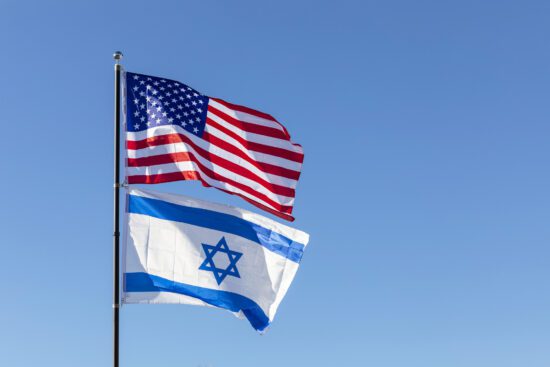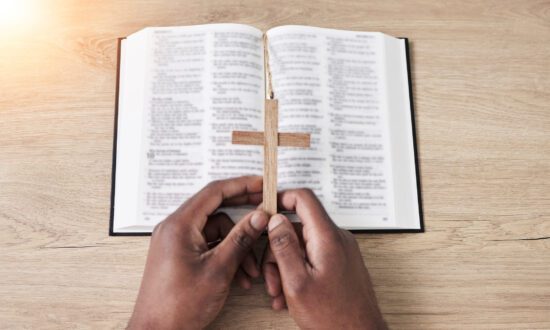Note: The following letter was written by Jason Duesing, provost at Midwestern Baptist Theological Seminary; Thomas White, president of Cedarville University; and Malcolm Yarnell, professor of systematic theology at Southwestern Baptist Theological Seminary.
We are compelled by conscience to respond publicly to a June 6 public editorial penned by a revered Southern Baptist newspaper editor. Before reading our fourfold response, please allow us a preliminary word to our brother in Christ and to the general reader:
First, to our brother in Christ, please know that we write as those who share your concerns about the imperiled present and future state of our culture and society. As Southern Baptist churchmen like you and as leaders in higher education, we have a long-standing appreciation for your work and witness at The Christian Index.
Second, to the general reader, please know that we agree with the editor’s effort to inform readers of teachings within Islam that are not fully known in the public square. We appreciate the editor’s attempt to raise questions requiring further exploration. Moreover, we recognize, support, and will heartily defend the right of the editor to express these views.
However, while we appreciate the intended tone of the editorial, we do disagree with the tenor for the four following reasons:
First, we believe, as Americans, that our Constitution guarantees the “first freedom” among all human freedoms, the freedom of religion with all of its benefits. For Christian Americans to question whether Muslim Americans qualify for religious freedom is essentially a question about whether all Americans are under the protection of the first and fourteenth amendments. We believe that all Americans, including Muslims, are granted, as an inalienable human right, the freedom of conscience to worship God as they believe best.
Second, we believe, as Baptists, that questioning whether Muslims deserve religious liberty is foreign to the historic Baptist understanding of biblical faith and practice. From the Reformation to the present, Baptists have been leading advocates for the separation of church and state and the freedom of religion for all citizens. In a supplement to this letter, we include quotes from the first continental Anabaptists and from the first English Baptists in order to demonstrate that religious liberty is foundational to our faith.
We note that Thomas Helwys (the English Baptist pastor to whom most scholars trace Baptist origins) specifically included “Turks” (i.e. Muslims) as possessing religious liberty from God. There are also quotes from leading American Baptists such as Roger Williams, Isaac Backus, and John Leland, each of whom was instrumental in shaping American Baptist life as well as American political thought.
Third, we believe, as Southern Baptists, that universal religious liberty is a non-negotiable aspect of our denomination’s theology. In that light, we have included a portion of the Baptist Faith and Message in the second appendix below. We have also included one of our most recent denominational resolutions supporting religious liberty. The Southern Baptist Convention has adopted dozens of religious liberty resolutions since our inception in 1845, and this resolution, from 2011, specifically supports the freedom of Muslims to build mosques.
Fourth, we believe, as Evangelical Christians, that it is inappropriate to question whether Muslims should retain the right freely to practice their religion. We understand that granting such rights to some forms of Islam might one day lead to the threatening of Christians in our worship. However, we trust God will honor our faithfulness to proclaim and practice his Word for his glory and to the best of our ability. Moreover, we believe any attempt to inhibit religious liberty will only prove to be a hindrance to reaching these precious men and women, created in God’s image, with the saving gospel of Jesus Christ. As those who believe in the exclusivity of Christ for salvation and who know that one cannot be coerced to believe and be saved, we want religious freedom for all human beings, while there is still time before the day of final judgment.
We ask our brother and we ask all Baptists, as well as other people interested in human freedom, to join us in preserving the first freedom, freedom of religion, and in rejecting any restriction of its universal application.
JASON G. DUESING
THOMAS WHITE
MALCOLM B. YARNELL III
Editors, First Freedom: The Beginning and End of Religious Liberty, Revised edition (Nashville: B&H Academic, 2016)
Examples of Baptist Advocacy of Universal Religious Liberty
“A Turk or a heretic is not convinced by our act, either with the sword or with fire, but only with patience and prayer.”
Balthasar Hubmaier, Concerning Heretics and Those Who Burn Them (1524)
“For men’s religion to God is between God and themselves. The king shall not answer for it. Let them be heretics, Turks, Jews, or whatsoever, it appertains not to the earthly power to punish them in the least measure.”
Thomas Helwys, A Short Declaration of the Mystery of Iniquity (1612)
“It is the will and command of God that (since the coming of his Son the Lord Jesus) a permission of the most paganish, Jewish, Turkish, or antichristian consciences and worships, be granted to all men in all nations and countries; and they are only to be fought against with that sword which is only (in soul matters) able to conquer, to wit, the sword of God’s Spirit, the Word of God.”
Roger Williams, Plea for Religious Liberty (1644)
“In all civil governments some are appointed to judge for others, and have power to compel others to submit to their judgment: but our Lord has most plainly forbidden us, either to assume or submit to any such thing in religion.”
Isaac Backus, Appeal to the Public for Religious Liberty (1773)
“Every man must give an account of himself to God, and therefore every man ought to be at liberty to serve God in that way that he can best reconcile it to his conscience. If government can answer for individuals at the day of judgment, let men be controlled by it in religious matters; otherwise, let men be free.”
John Leland, The Rights of Conscience Inalienable (1791)
Our Southern Baptist Theological Commitment
“The state has no right to impose penalties for religious opinions of any kind. The state has no right to impose taxes for the support of any form of religion. A free church in a free state is the Christian ideal, and this implies the right of free and unhindered access to God on the part of all men, and the right to form and propagate opinions in the sphere of religion without interference by the civil power.”
Baptist Faith and Message (2000)
“Whereas, The rapidly changing religious diversity in the United States makes it important to reassert what Baptists have affirmed historically about complete religious liberty for all persons and a free church in a free state; and whereas, this conviction is grounded in the teaching of our Lord Jesus who declared that His Kingdom is “not of this world” (John 18:36), and therefore He has not authorized any earthly realm to advance His Kingdom by the power of the sword; and whereas, the transformation of the heart comes through the action of the Holy Spirit (John 3:3-8), and thus cannot be legislated or forced; and whereas, efforts to confront spiritual matters with carnal, coercive means are both morally wrong and counter-productive (2 Corinthians 10:4; Ephesians 6:12); now, therefore, be it resolved, that the messengers to the Southern Baptist Convention meeting in Phoenix, Arizona, June 14-15, 2011, restate our long-standing view that religious liberty is an inalienable human right, rooted in the image of God and possessed by all human beings; and be it further resolved, that we affirm that this freedom entails the civil liberty to convert to another religion or to no religion, to seek to persuade others of the claims of one’s religion, and to worship without harassment or impediment from the state; and be it further resolved, that we oppose the imposition of any system of jurisprudence by which people of different faiths do not enjoy the same legal rights; and be it further resolved, that we deny that any government should use any coercive measure—including zoning laws or permits—to restrict religious speech or worship, based on the theological content of that speech or worship; and be it further resolved, that we call on the United States government to maintain complete religious liberty for all Americans, as guaranteed in the First Amendment to the Constitution.”
On Religious Liberty in a Global Society, Resolution of the Southern Baptist Convention, June 14-15, 2011
WHEREAS, Popular movements calling for greater freedom and democracy are afoot in nations such as Libya, Tunisia, Egypt, Syria, Jordan, Pakistan, Iran, Yemen, and Saudi Arabia, the governments of which deny their citizens religious liberty; and
WHEREAS, Many others in the Islamic world are denied the right to convert from Islam, because Sharia law makes such conversion a crime subject to penalties as severe as capital punishment; and
WHEREAS, Others around the world suffering under totalitarian regimes are denied the right to worship freely; and
WHEREAS, The diplomatic, economic, and military engagement of the United States of America in some of these countries brings with it a unique responsibility to promote religious liberty; and
WHEREAS, Advocacy for religious liberty is crucial not only abroad but also at home; and
WHEREAS, The rapidly changing religious diversity in the United States makes it important to reassert what Baptists have affirmed historically about complete religious liberty for all persons and a free church in a free state; and
WHEREAS, This conviction is grounded in the teaching of our Lord Jesus who declared that His Kingdom is “not of this world” (John 18:36), and therefore He has not authorized any earthly realm to advance His Kingdom by the power of the sword; and
WHEREAS, The transformation of the heart comes through the action of the Holy Spirit (John 3:3-8), and thus cannot be legislated or forced; and
WHEREAS, Efforts to confront spiritual matters with carnal, coercive means are both morally wrong and counter-productive (2 Corinthians 10:4; Ephesians 6:12); now, therefore, be it
RESOLVED, That the messengers to the Southern Baptist Convention meeting in Phoenix, Arizona, June 14-15, 2011, restate our long-standing view that religious liberty is an inalienable human right, rooted in the image of God and possessed by all human beings; and be it further
RESOLVED, That we affirm that this freedom entails the civil liberty to convert to another religion or to no religion, to seek to persuade others of the claims of one’s religion, and to worship without harassment or impediment from the state; and be it further
RESOLVED, That we oppose the imposition of any system of jurisprudence by which people of different faiths do not enjoy the same legal rights; and be it further
RESOLVED, That we deny that any government should use any coercive measure—including zoning laws or permits—to restrict religious speech or worship, based on the theological content of that speech or worship; and be it further
RESOLVED, That we call on the United States government to maintain complete religious liberty for all Americans, as guaranteed in the First Amendment to the Constitution; and be it further
RESOLVED, That we petition our political, diplomatic, and military leaders to make religious liberty for all people a priority in decisions of foreign policy and international aid; and be it finally
RESOLVED, That we pray for our brothers and sisters in Christ around the world who are now persecuted, imprisoned, or facing execution for their testimony of faith in Jesus.










